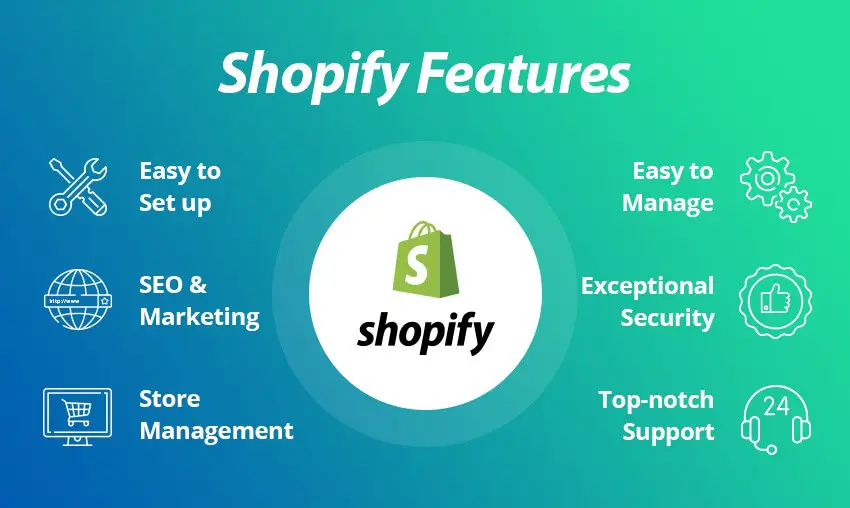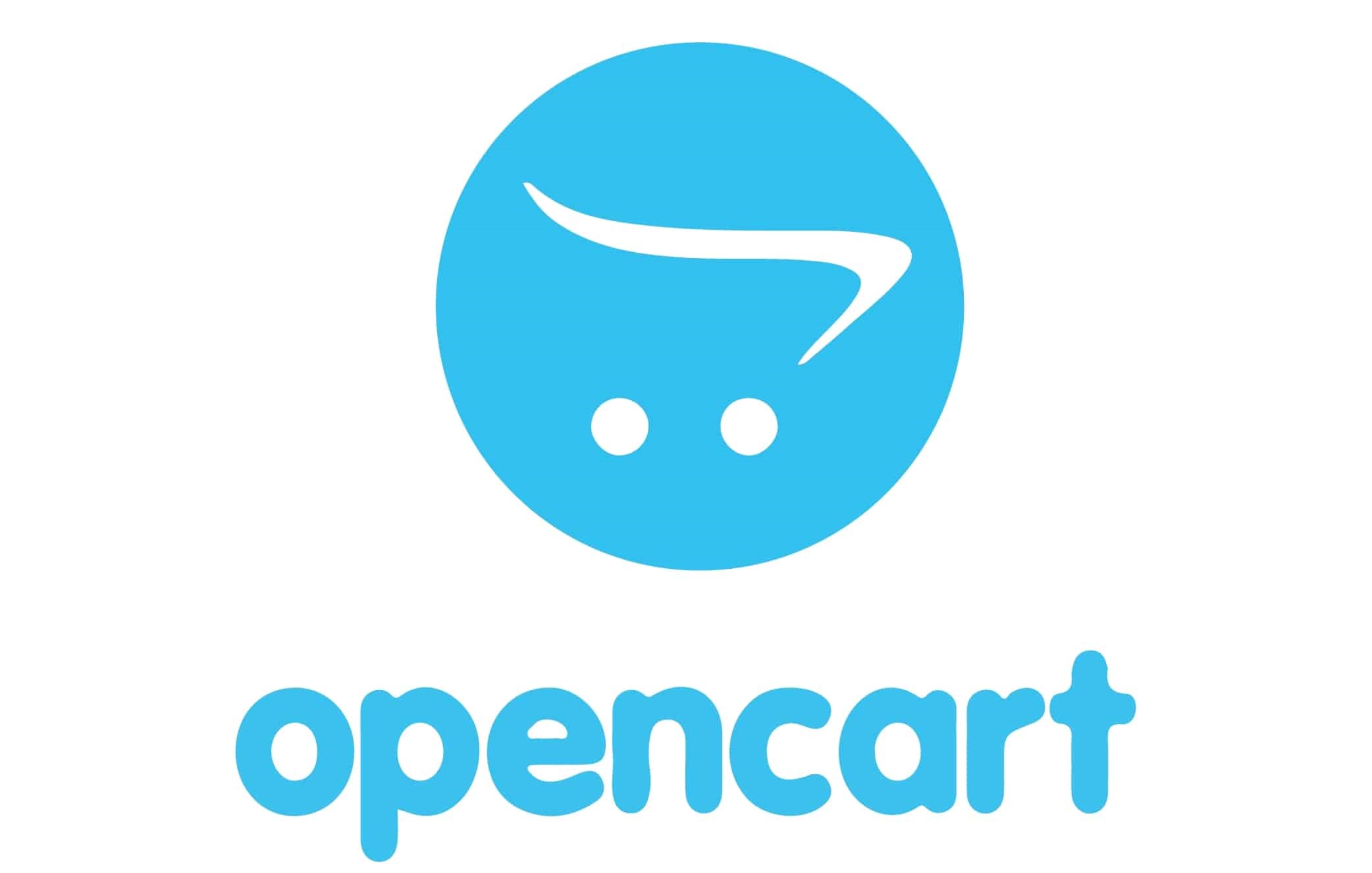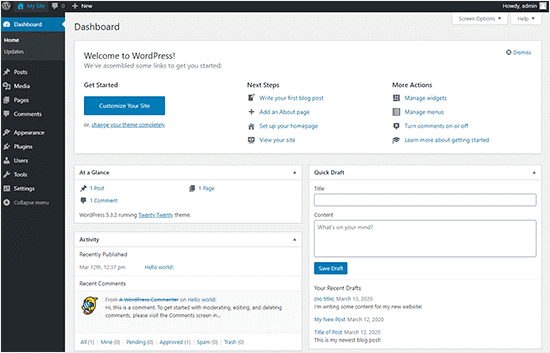Comparison Between WooCommerce (WordPress), Shopify, Magento and OpenCart
In today’s world of e-commerce, choosing the right platform for your online store can be overwhelming. Among the top choices, there are WooCommerce (WordPress), Shopify, Magento, and OpenCart. Each platform has its strengths and weaknesses, and it’s important to understand them before making a decision. In this blog, we’ll compare the key features and functionalities of each platform to help you make an informed decision.
WooCommerce (WordPress)
WooCommerce is a plugin for WordPress that allows you to create an online store. It’s an open-source platform, which means you can customize and modify it to fit your specific needs. WooCommerce is popular among small and medium-sized businesses because of its ease of use and low cost. Also, you have a variety of plugins that facilitates WooCommerce, such as Booster.io, click here for more information.

Features:
- Easy to install and set up
- Offers a wide range of free and paid plugins and themes
- Integrates with a variety of payment gateways
- Offers built-in SEO tools
- Provides detailed analytics and reports
Pros:
- Offers a low-cost option for small businesses
- Has a user-friendly interface
- Offers a wide range of customization options
- Integrates with WordPress, which is great for content marketing
- Has a large community of developers and users
Cons:
- Can become slow and sluggish with a large number of plugins
- Requires regular maintenance and updates
- May require technical knowledge to set up and customize
- Limited scalability compared to other platforms
- Lacks certain advanced features such as multi-vendor support and product comparisons
Shopify
Shopify is a cloud-based e-commerce platform that offers a complete solution for creating and managing an online store. It’s a popular choice among businesses of all sizes because of its user-friendly interface and ease of use.

Features:
- Offers a wide range of free and paid themes and plugins
- Integrates with a variety of payment gateways
- Provides built-in SEO tools and analytics
- Offers multi-channel selling capabilities
- Offers 24/7 customer support
Pros:
- Easy to use and set up
- Provides a complete solution for managing an online store
- Offers a wide range of customization options
- Provides excellent customer support
- Offers advanced features such as multi-currency support and abandoned cart recovery
Cons:
- Can be expensive compared to other platforms
- Limits customization options for advanced users
- Requires a monthly subscription fee
- May require additional fees for certain features and plugins
- Limits the ability to modify the code and database
Magento
Magento is an open-source e-commerce platform that offers advanced features and capabilities for creating and managing an online store. It’s a popular choice among large businesses and enterprises because of its scalability and customization options.

Features:
- Offers a wide range of advanced features and capabilities
- Provides a large selection of free and paid plugins and themes
- Offers multi-store and multi-vendor support
- Provides built-in SEO tools and analytics
- Offers advanced order management and inventory tracking capabilities
Pros:
- Offers advanced features and capabilities for large businesses and enterprises
- Provides a high level of customization options
- Offers multi-store and multi-vendor support
- Provides excellent scalability and performance
- Offers a large community of developers and users
Cons:
- Requires technical knowledge to set up and customize
- Can be expensive compared to other platforms
- May require additional fees for certain features and plugins
- Requires regular maintenance and updates
- Can be slow and sluggish with a large number of products and customers
OpenCart
OpenCart is an open-source e-commerce platform that offers a simple and lightweight solution for creating and managing an online store. It’s a popular choice among small and medium-sized businesses because of its ease of use and low cost.

Features:
- Offers a wide range of free and paid plugins and themes
- Provides a user-friendly interface for managing products and orders
- Offers multi-store and multi-language support
- Provides built-in SEO tools and analytics
- Offers a large community of developers and users
Pros:
- Offers a low-cost option for small businesses
- Provides a user-friendly interface for managing products and orders
- Offers a wide range of customization options
- Provides multi-store and multi-language support
- Offers a large community of developers and users
Cons:
- Limited scalability compared to other platforms
- Lacks certain advanced features such as multi-vendor support and product comparisons
- May require technical knowledge to set up and customize
- Requires regular maintenance and updates
- Can be slow and sluggish with a large number of products and customers
Comparison:
Now that we’ve covered the key features and pros and cons of each platform, let’s compare them side by side.
Cost:
WooCommerce and OpenCart offer a low-cost option for small and medium-sized businesses, while Shopify and Magento can be more expensive, especially for larger businesses.
Ease of Use:
WooCommerce, Shopify, and OpenCart offer a user-friendly interface that is easy to use, while Magento can be more complex and require technical knowledge.
Customization:
WooCommerce, Shopify, Magento, and OpenCart offer a wide range of customization options, but Magento and Shopify offer more advanced features and capabilities.
Scalability:
Magento and Shopify offer excellent scalability and performance, while WooCommerce and OpenCart have limited scalability compared to other platforms.
Community:
WooCommerce, Magento, and Shopify have large communities of developers and users, while OpenCart has a smaller community.
Which CMS to Choose as a Beginner?
As a beginner, choosing the right content management system (CMS) can be a challenging decision. There are many CMS options available, each with its own set of features, strengths, and weaknesses. If you develop a website using WordPress and use WooCommerce as your e-commerce platform, then WooCommerce will provide you with the necessary access to manage your online store.

With WooCommerce, you can easily manage your products, orders, customers, shipping, taxes, and payments from your WordPress dashboard. You can also install various extensions and plugins to enhance the functionality of your online store.
However, it is important to note that WooCommerce may not provide you with access to all aspects of your website, such as website design and layout, SEO optimization, and other non-e-commerce related features. For such tasks, you may need to rely on other plugins or hire a web developer.
Conclusion:
Choosing the right e-commerce platform can be a challenging decision, and it ultimately depends on your business needs and budget. WooCommerce and OpenCart are great options for small and medium-sized businesses with limited budgets and technical knowledge. Shopify is a good option for businesses of all sizes that want a complete solution for managing an online store. Magento is a great option for larger businesses and enterprises that require advanced features and scalability. Overall, each platform has its strengths and weaknesses, and it’s important to carefully consider them before making a decision.
Comparison Between WooCommerce (WordPress), Shopify, Magento and OpenCart
In today’s world of e-commerce, choosing the right platform for your online store can be overwhelming. Among the top choices, there are WooCommerce (WordPress), Shopify, Magento, and OpenCart. Each platform has its strengths and weaknesses, and it’s important to understand them before making a decision. In this blog, we’ll compare the key features and functionalities of each platform to help you make an informed decision.
WooCommerce (WordPress)
WooCommerce is a plugin for WordPress that allows you to create an online store. It’s an open-source platform, which means you can customize and modify it to fit your specific needs. WooCommerce is popular among small and medium-sized businesses because of its ease of use and low cost. Also, you have a variety of plugins that facilitates WooCommerce, such as Booster.io, click here for more information.

Features:
- Easy to install and set up
- Offers a wide range of free and paid plugins and themes
- Integrates with a variety of payment gateways
- Offers built-in SEO tools
- Provides detailed analytics and reports
Pros:
- Offers a low-cost option for small businesses
- Has a user-friendly interface
- Offers a wide range of customization options
- Integrates with WordPress, which is great for content marketing
- Has a large community of developers and users
Cons:
- Can become slow and sluggish with a large number of plugins
- Requires regular maintenance and updates
- May require technical knowledge to set up and customize
- Limited scalability compared to other platforms
- Lacks certain advanced features such as multi-vendor support and product comparisons
Shopify
Shopify is a cloud-based e-commerce platform that offers a complete solution for creating and managing an online store. It’s a popular choice among businesses of all sizes because of its user-friendly interface and ease of use.

Features:
- Offers a wide range of free and paid themes and plugins
- Integrates with a variety of payment gateways
- Provides built-in SEO tools and analytics
- Offers multi-channel selling capabilities
- Offers 24/7 customer support
Pros:
- Easy to use and set up
- Provides a complete solution for managing an online store
- Offers a wide range of customization options
- Provides excellent customer support
- Offers advanced features such as multi-currency support and abandoned cart recovery
Cons:
- Can be expensive compared to other platforms
- Limits customization options for advanced users
- Requires a monthly subscription fee
- May require additional fees for certain features and plugins
- Limits the ability to modify the code and database
Magento
Magento is an open-source e-commerce platform that offers advanced features and capabilities for creating and managing an online store. It’s a popular choice among large businesses and enterprises because of its scalability and customization options.

Features:
- Offers a wide range of advanced features and capabilities
- Provides a large selection of free and paid plugins and themes
- Offers multi-store and multi-vendor support
- Provides built-in SEO tools and analytics
- Offers advanced order management and inventory tracking capabilities
Pros:
- Offers advanced features and capabilities for large businesses and enterprises
- Provides a high level of customization options
- Offers multi-store and multi-vendor support
- Provides excellent scalability and performance
- Offers a large community of developers and users
Cons:
- Requires technical knowledge to set up and customize
- Can be expensive compared to other platforms
- May require additional fees for certain features and plugins
- Requires regular maintenance and updates
- Can be slow and sluggish with a large number of products and customers
OpenCart
OpenCart is an open-source e-commerce platform that offers a simple and lightweight solution for creating and managing an online store. It’s a popular choice among small and medium-sized businesses because of its ease of use and low cost.

Features:
- Offers a wide range of free and paid plugins and themes
- Provides a user-friendly interface for managing products and orders
- Offers multi-store and multi-language support
- Provides built-in SEO tools and analytics
- Offers a large community of developers and users
Pros:
- Offers a low-cost option for small businesses
- Provides a user-friendly interface for managing products and orders
- Offers a wide range of customization options
- Provides multi-store and multi-language support
- Offers a large community of developers and users
Cons:
- Limited scalability compared to other platforms
- Lacks certain advanced features such as multi-vendor support and product comparisons
- May require technical knowledge to set up and customize
- Requires regular maintenance and updates
- Can be slow and sluggish with a large number of products and customers
Comparison:
Now that we’ve covered the key features and pros and cons of each platform, let’s compare them side by side.
Cost:
WooCommerce and OpenCart offer a low-cost option for small and medium-sized businesses, while Shopify and Magento can be more expensive, especially for larger businesses.
Ease of Use:
WooCommerce, Shopify, and OpenCart offer a user-friendly interface that is easy to use, while Magento can be more complex and require technical knowledge.
Customization:
WooCommerce, Shopify, Magento, and OpenCart offer a wide range of customization options, but Magento and Shopify offer more advanced features and capabilities.
Scalability:
Magento and Shopify offer excellent scalability and performance, while WooCommerce and OpenCart have limited scalability compared to other platforms.
Community:
WooCommerce, Magento, and Shopify have large communities of developers and users, while OpenCart has a smaller community.
Which CMS to Choose as a Beginner?
As a beginner, choosing the right content management system (CMS) can be a challenging decision. There are many CMS options available, each with its own set of features, strengths, and weaknesses. If you develop a website using WordPress and use WooCommerce as your e-commerce platform, then WooCommerce will provide you with the necessary access to manage your online store.

With WooCommerce, you can easily manage your products, orders, customers, shipping, taxes, and payments from your WordPress dashboard. You can also install various extensions and plugins to enhance the functionality of your online store.
However, it is important to note that WooCommerce may not provide you with access to all aspects of your website, such as website design and layout, SEO optimization, and other non-e-commerce related features. For such tasks, you may need to rely on other plugins or hire a web developer.
Conclusion:
Choosing the right e-commerce platform can be a challenging decision, and it ultimately depends on your business needs and budget. WooCommerce and OpenCart are great options for small and medium-sized businesses with limited budgets and technical knowledge. Shopify is a good option for businesses of all sizes that want a complete solution for managing an online store. Magento is a great option for larger businesses and enterprises that require advanced features and scalability. Overall, each platform has its strengths and weaknesses, and it’s important to carefully consider them before making a decision.

















